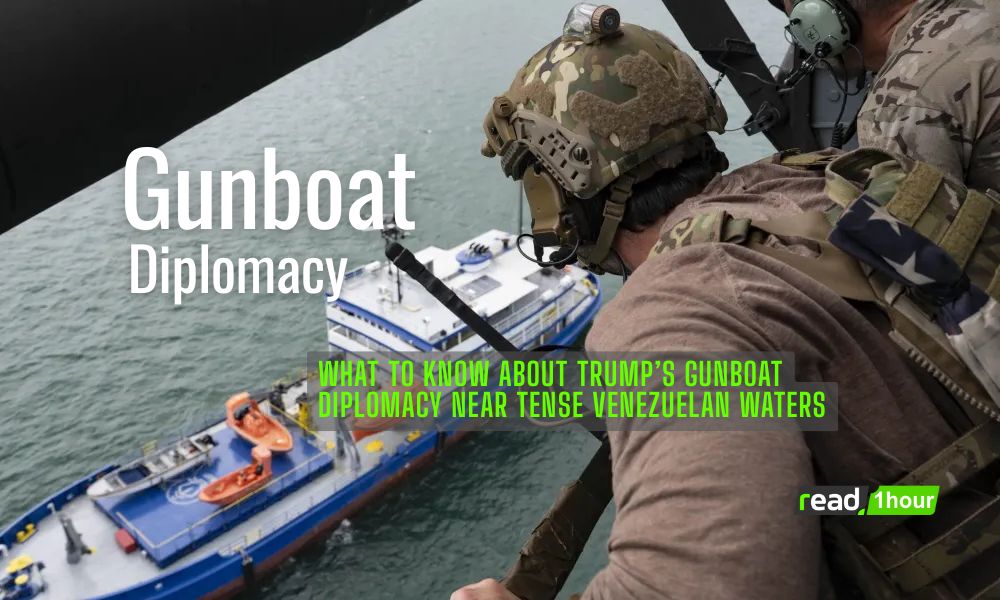What to Know About Trump’s Gunboat Diplomacy Near Tense Venezuelan Waters
U.S. gunboat diplomacy near Venezuela raises tensions as Trump’s naval strategy reshapes regional politics and challenges diplomatic stability.
Tensions in the Caribbean are rising as former U.S. President Donald Trump’s approach to gunboat diplomacy near Venezuela has once again drawn global attention. The deployment of American naval assets close to Venezuelan waters has sparked debate about U.S. foreign policy, regional stability, and the future of relations between Washington and Caracas.

The operation, initiated during Trump’s influence on U.S. strategic decisions, involves the presence of U.S. Navy ships patrolling international waters near Venezuela. U.S. officials claim the mission aims to counter narcotics trafficking and maintain maritime security. However, critics argue that the move is political muscle-flexing aimed at pressuring the Venezuelan government, which has long been at odds with U.S. leadership.
Experts say the strategy mirrors historical cases where powerful nations used naval forces to signal dominance without engaging in direct conflict. This “gunboat diplomacy” is designed to deliver a clear message: the United States is prepared to escalate pressure if Venezuela continues to deepen ties with rival nations such as Russia, China, and Iran.
The Venezuelan government condemned the actions as “provocative and destabilizing,” accusing the U.S. of violating regional peace. Officials in Caracas claim that the presence of American warships puts unnecessary strain on diplomatic efforts, especially as Venezuela faces ongoing economic turmoil, energy shortages, and humanitarian challenges.
Regional organizations, such as the Organization of American States (OAS), have called for restraint on both sides. Latin American leaders warn that military posturing could worsen regional tensions and impact neighboring countries engaged in trade and migration coordination with Venezuela.
Trump supporters argue the strategy is necessary to hold Venezuela’s leadership accountable for human rights abuses, corruption, and alleged partnerships with hostile foreign powers. They insist that strong military presence in the region protects U.S. national interests and prevents adversarial nations from gaining a foothold in the Western Hemisphere.
Defense analysts note that the United States has long maintained a maritime presence in the Caribbean, but the current operations carry heightened political symbolism. The timing coincides with growing global power competition, giving the move an added layer of geopolitical significance.
Human rights advocates have expressed concern about how rising tensions might affect Venezuelan citizens. Many fear that increased military pressure could provoke retaliation from the government, worsening conditions for civilians already struggling under economic collapse.
Meanwhile, U.S. lawmakers remain divided. Some members of Congress support Trump’s hardline stance, arguing it sends a necessary warning. Others criticize it as an unnecessary provocation that could escalate into conflict or undermine ongoing diplomatic channels.
As the situation evolves, observers say the most important factor will be whether the U.S. seeks genuine diplomacy or continues to rely on military pressure. For now, Trump’s gunboat diplomacy near Venezuela demonstrates how naval power continues to play a central role in America’s foreign policy—especially in regions where political tensions are already high.
